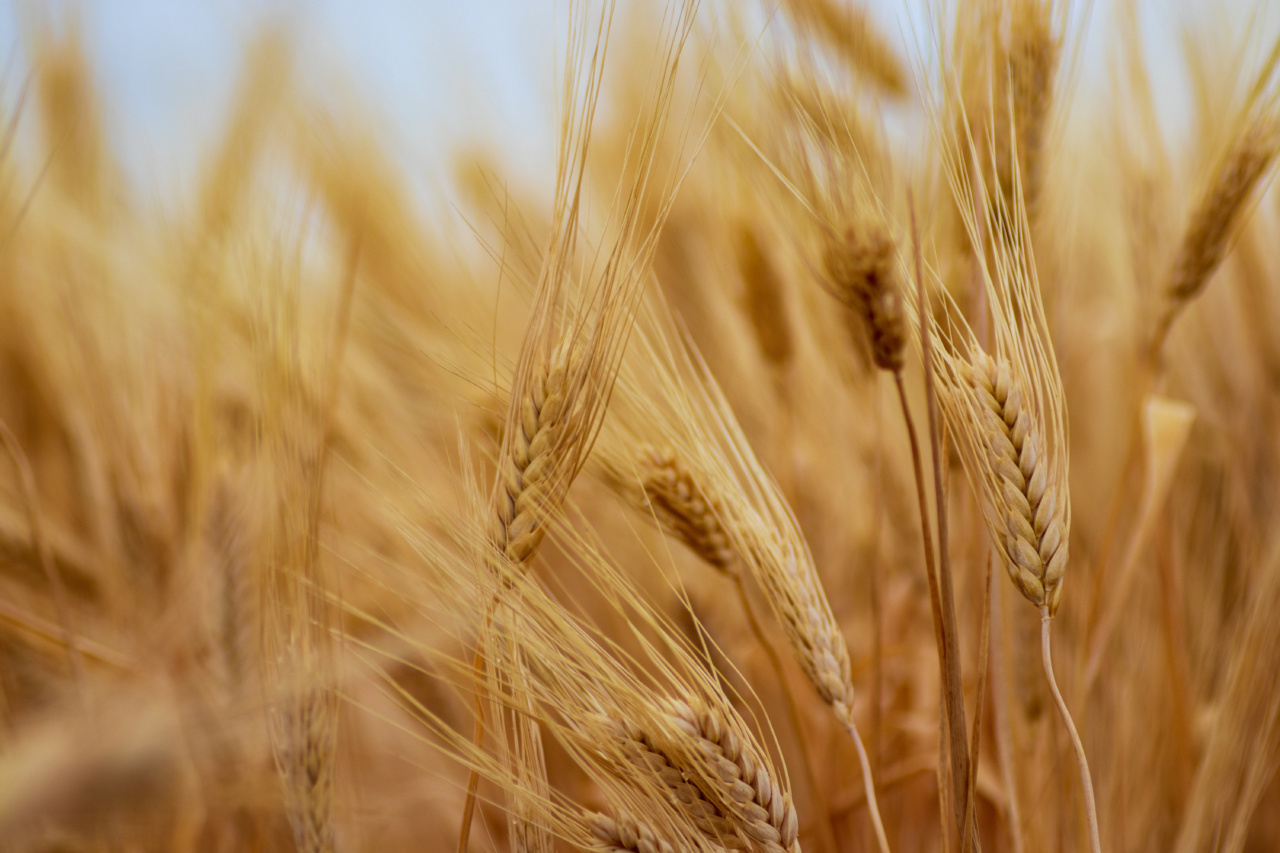Wheat is a staple food choice for many cultures around the world. This versatile grain not only provides nourishment but also offers various health benefits that contribute to our overall well-being.
Nutritional Value of Wheat
Wheat is rich in essential nutrients, including carbohydrates, proteins, fibers, vitamins, and minerals. These components play a vital role in our body’s functions, ensuring optimal health and vitality.
Promotes Digestive Health
One of the significant benefits of wheat is its ability to promote digestive health. The high fiber content in wheat aids in maintaining regular bowel movements and preventing constipation.
It also acts as a prebiotic, nourishing the beneficial bacteria in our gut and promoting a healthy gut microbiome.
Boosts Immune Health
Wheat contains several bioactive compounds that can help strengthen the immune system. These compounds include antioxidants, such as selenium and vitamin E, which protect our cells from damage caused by harmful free radicals.
Additionally, wheat is a good source of zinc, which plays a crucial role in immune function and helps fight off infections.
Rich in Antioxidants
Antioxidants are essential for maintaining health and preventing chronic diseases.
Wheat is naturally rich in antioxidants, including phenolic acids and flavonoids, which can help reduce the risk of developing conditions such as heart disease, certain cancers, and neurodegenerative disorders like Alzheimer’s disease.
Source of Vitamins and Minerals
Wheat contains various vitamins and minerals necessary for our well-being. It is a good source of B vitamins, including thiamin, riboflavin, niacin, and folate, which are essential for energy production and brain function.
Additionally, wheat provides minerals such as magnesium, phosphorus, and iron, which are crucial for maintaining healthy bones, muscles, and blood.
Contributes to Energy Levels
As a carbohydrate-rich food, wheat plays a significant role in providing energy to our bodies. The complex carbohydrates in wheat are broken down into glucose, which is then utilized by our cells to produce energy.
Including wheat in our diet can help sustain energy levels, enhance physical performance, and support overall vitality.
Impact on Mental Health
Consuming wheat can also have a positive impact on our mental health. The carbohydrates present in wheat stimulate the production of serotonin, a neurotransmitter that regulates mood and promotes feelings of happiness and well-being.
Including wheat in our meals can contribute to maintaining healthy mental and emotional balance.
The Role of Chlorophyll in Our Well-Being
Chlorophyll is a natural pigment found in plants, responsible for their green color. Apart from its role in photosynthesis, chlorophyll also offers numerous benefits for our physical and mental well-being.
Natural Detoxification
Chlorophyll has natural detoxification properties that aid in purifying our bodies. It helps eliminate toxins, heavy metals, and harmful substances, supporting the health of our liver and other organs involved in the detoxification process.
Regular intake of chlorophyll-rich foods can assist in maintaining a clean and healthy internal environment.
Powerful Antioxidant
Similar to wheat, chlorophyll is also a powerful antioxidant. It helps neutralize harmful free radicals and protects our cells from oxidative damage linked to various health conditions.
By including chlorophyll-rich foods in our diet, we can bolster our antioxidant defenses and promote optimal health.
Supports Cardiovascular Health
Chlorophyll has been shown to have beneficial effects on cardiovascular health. It helps lower blood pressure, reduce cholesterol levels, and prevent the formation of blood clots.
These properties contribute to a healthier cardiovascular system, reducing the risk of heart disease and stroke.
Enhances Skin Health
Chlorophyll offers benefits for our skin due to its anti-inflammatory and wound-healing properties. It aids in reducing skin redness, irritation, and blemishes.
Furthermore, chlorophyll can help protect our skin from harmful UV radiation, promoting youthful and healthier-looking skin.
Abundance in Green Vegetables
Green vegetables, including spinach, kale, and broccoli, are excellent sources of chlorophyll. By incorporating these nutrient-dense foods into our diet, we can maximize the benefits of chlorophyll for our well-being.
Including a variety of green vegetables ensures a diverse intake of chlorophyll and other vital nutrients.
Final Thoughts
Both wheat and chlorophyll offer numerous benefits for our overall well-being. Wheat provides essential nutrients, promotes digestive health, boosts immune function, and contributes to our energy levels.
Chlorophyll aids in natural detoxification, acts as a powerful antioxidant, supports cardiovascular health, and enhances our skin health. Incorporating wheat and chlorophyll-rich foods into our diets can have a significant impact on our physical and mental health, contributing to a healthier lifestyle.






























